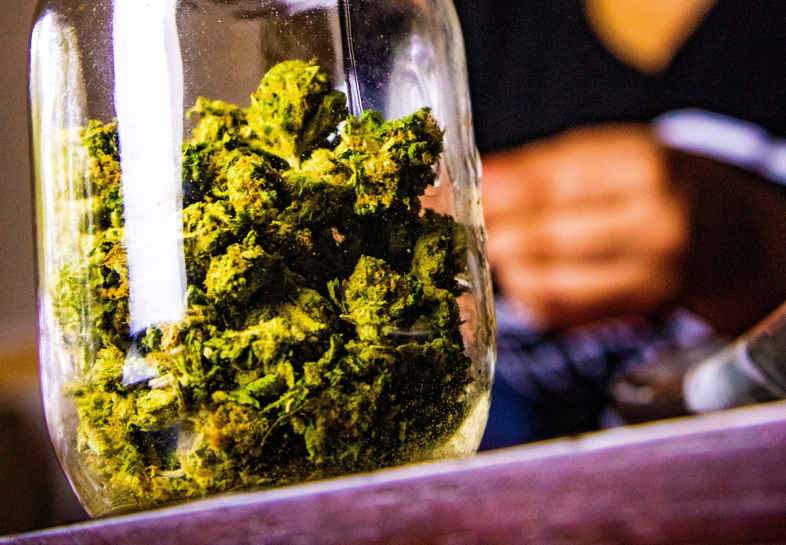Modified on: 24/11/2023
LET’S FIND OUT ABOUT THC’S THERAPEUTIC PROPERTIES (ONE OF THE MAIN HEMP’S ACTIVE INGREDIENTS)
Marijuana’s therapeutic use is often an issue!
It is no secret that essential goals are being achieved concerning the recognition of medical cannabis (not to be confused with CBD cannabis) as a valuable substance to the scientific cause, most recently the United Nations’ removal of hemp and hashish from the table of harmful substances with no or low therapeutic effects.
Despite these small but significant advances, there is still a long way to go to achieve the ultimate goal of cannabis lovers, namely, to make CBD buds.
However, at least in the medical field, events such as this one could allow a gradual easing of bureaucratic procedures related to research into the characteristics and benefits of cannabidiol (CBD) and delta-9-tetrahydrocannabinol (THC), the two best-known cannabis’ active ingredients.
In this article, we will focus on the latter.


What is THC, and what are its properties?
Delta-9-tetrahydrocannabinol, commonly known as THC, as we have already pointed out, is one of the essential active ingredients present in Sativa cannabis and, together with Cannabidiol (which also belongs to the phytocannabinoid family) is the one that scientists are interested in for its therapeutic properties.
THC well-known actions are:
- pain-relieving
- relaxing
- anti-emetic;
- anti-nausea;
- appetite stimulant.
Because it acts to a greater extent on cannabinoid receptors in the brain, THC causes specific effects such as image and sound alteration, fatigue, relaxation and increased appetite, making it a psychotropic substance.
However, as it is non-toxic and acts in symbiosis with cannabidiol, which prolongs its positive effects and limits its side effects, it can be used in the medical field to treat various diseases. Both active ingredients meet specific standards!
Read also: Where is marijuana legal in Europe?
Diseases that can be treated with the properties of THC
The most common situations in which the therapeutic effects of THC can be exploited are:
- Asthma
According to a study published in a well-known scientific journal, the effects of tetrahydrocannabinol on patients with asthma are similar to those of the most commonly used bronchodilators, such as isoprenaline and salbutamol. It is recommended that THC should be taken orally and not by inhalation due to the potential irritant effect on the mucous membranes of the respiratory tract. - Vomiting and nausea
These two common situations of discomfort can occur either due to an illness or as a consequence of specific therapies designed to treat it. Since there are several cannabinoid receptors throughout the gastrointestinal line, cannabis is actively involved in controlling these situations and treating various digestive conditions. - Pain
Another branch of medicine in which THC is used is pain therapy, which is needed in various cases ranging from cancer patients to those being treated for sclerosis, AIDS or chronic pain. Due to its analgesic effects, THC can be used either as a replacement for other therapies (such as opioids) or compliment them.


- Cancer
In the treatment of this dreadful disease, the marijuana use is becoming increasingly popular among oncologists. In addition to alleviating the most common effects of chemotherapy such as pain, poor appetite and weakness, animal studies show results on THC potential and other cannabinoids to treat cancer itself, as they can neutralise particular types of cancer cells, such as those in the lungs. Research is ongoing in this area. - Sclerosis
Cannabis use of in treating sclerosis and its associated muscle spasticity has also proved successful, with many countries approving a hemp-based oral drug a few years ago. A study has also shown that some types of hemp have satisfactory effects on another symptom of sclerosis, incontinence and more. - Alzheimer’s disease
In the treatment of Alzheimer’s disease, THC is showing promising results in reducing markers and inflammation and alleviating other symptoms of the disease, such as sleep disorders. Furthermore, according to some studies, CBD weed a alleviates the symptoms of dementia and acts as a neuro-protector against the onset of Alzheimer’s disease.
Read also: Buds, stems, leaves? What else can you smoke besides marijuana buds?
In conclusion
At present, in many European countries, cannabis use for medicinal purposes is strictly regulated by law, which allows its service only for short periods under medical prescription when other conventional therapies prove ineffective.
However, as the propensity for its use is increasing among physicians, it is plausible to expect that more and more consideration will be given to this beautiful resource.
However, keep in mind that the recreational use of CBD flower’ s Cannabis is prohibited by law in most countries.
However, suppose you are fascinated by this plant and are interested in buying cannabis online as a collectable. In that case, you will find several varieties of CBD Flowers and CBD hashish in our CBD cannabis online shop.
Visit us at our CBD Shop at JustBob!









